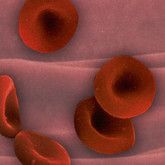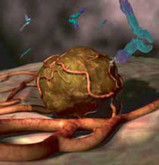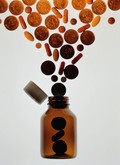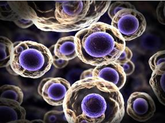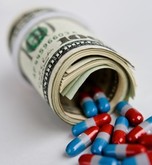Biosimilars/Research
Positive phase I results for pegfilgrastim biosimilar
US-based biosimilars developer Coherus BioSciences (Coherus) announced on 1 October 2015 that results from a phase I study of its pegfilgrastim biosimilar (CHS‑1701) had met its primary endpoint.
Answers to questions about anti-TNF biosimilars
While the potential pharmacoeconomic benefits of cost-effective biosimilars seem clear, several issues have been raised regarding, for example, the definition of biosimilarity and the validity of indication extrapolation, as well as the ‘switchability’ and relative immunogenicity of biosimilars and their reference drugs. In a review by Isaacs and co-authors, these questions with reference to CT-P13 (Remsima, Inflectra), a biosimilar of the anti-tumour necrosis factor (TNF) monoclonal antibody infliximab (Remicade) were discussed [1].
Biosimilar epoetin-α as effective as originator in anaemia treatment
A study by researchers in Italy has concluded that biosimilar epoetin‑α appears to be comparable to originator epoetin‑α plus liposomal iron (Sideral), vitamin B12 and folates in terms of efficacy and safety for the treatment of refractory anaemia [1].
Positive phase III results for bevacizumab biosimilar
Results of a phase III trial have demonstrated the similarity of partners Amgen and Allergan’s biosimilar bevacizumab candidate (ABP 215) to Avastin in patients with advanced non-small cell lung cancer (NSCLC).
Pharmacoeconomic modelling of biosimilars in the US
There are many challenges and uncertainties associated with the introduction of biosimilars to the US. To try and address these, authors from the Partnership for Health Analytic Research developed a conceptual framework to provide guidance in modelling biosimilars in the US setting [1].
Etanar as effective as adalimumab and infliximab in rheumatoid arthritis
A study of Etanar – an etanercept similar biotherapeutic product – has shown that it is as effective as adalimumab and infliximab in a cohort of patients with rheumatoid arthritis in a real-life setting [1].
Non-originator bevacizumab candidate non-inferior to Avastin
Results of a phase III clinical study of Biocad’s non-originator bevacizumab candidate BCD-021 demonstrated ‘equivalence’ compared to the originator biological (Avastin) in patients with non-small cell lung cancer (NSCLC) [1].
Overcoming hurdles to biosimilars cost savings in the US
The US approved its first biosimilar, Zarxio (filgrastim-sndz), on 6 March 2015 [1]. But how can the country overcome hurdles to the cost savings that can be achieved from these drugs? That is a question Sarpatwari and co-authors have tried to answer [2].
Safety of filgrastim biosimilars following stem-cell transplantation
The safety of granulocyte colony-stimulating factor (G-CSF; filgrastim) biosimilars was compared with that of the originator, Neupogen (Amgen), in a retrospective, single-institution study. Simona Bassi and co-authors at the Guglielmo da Saliceto Hospital in Piacenza, Italy, analysed data from patients with lymphoma or myeloma who had undergone autologous haematopoietic stem cell transplantation (HSCT) at the Guglielmo da Saliceto Hospital.
Biosimilars in the US: hurdles to cost savings
In light of the recent approval of the first biosimilar in the US, Zarxio (filgrastim-sndz), [1], Sarpatwari and co-authors look at the hurdles to cost savings for biosimilars in the US [2].


